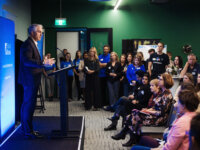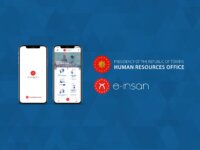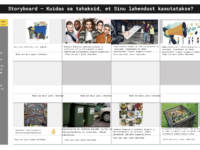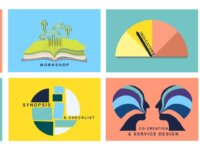New Zealand wants our small businesses to be the most digitally enabled in the world. Digital Boost helps owners and employees to build confidence and skills to digitally transform their businesses. Cynefin complexity theory, agile programme development, and public-private partnerships are used to deliver easily accessible learning and services. This includes bespoke playlists of video content, online diagnostic tools, peer-learning support and free or discounted digital equipment or services.…
Innovation Tag: Skills and Competencies
Trend Atlas is a digital, interactive platform with rich insights on local and global trends and emerging signals to inform strategic planning, policy development and service redesign. It reduces research time, rework and duplication by breaking down information silos with centralised data and evidence. Built by policy people who upskilled in digital, it combines automation and curation with a sustainable contributor model to create a collaborative and trusted strategic intelligence service.
e-insan is an integrated platform, offering a wide range of services based on equal opportunity and accessibility for employment and lifelong professional development. In addition, it supports data-driven decision-making processes. The platform provides job and internship opportunities, online training for employees, and many contents of career development for youth and creates a talent pool with verified data. Blockchain-supported e-insan increases efficiency and transparency in HR management.
Officina is a lab for innovation in the public sector whose main objective is to catalyse the energy of young talents by offering them a transformative training programme. Officina was developed to address a triple urgency: future decision makers not perceiving the public sector as an attractive workplace; the public sector having high average age workforce and lack of innovative approaches; society at large needing a more modern and appealing public sector in this key historical moment.
How to bring new ways of working and problem-solving tools to the Estonian public sector? Over the course of a year and a half the Public Sector Innovation Team of Estonia developed a design sprint format suitable for the Estonian public sector. By constantly adapting and improving the format the Innovation Team has seen that it is a highly effective tool for spreading design thinking methods and generating enthusiasm around them.
Case Study
Personalized feedback service for national qualification test result – Digital Mentor Service…

"Why did I fail? How should I develop my career?" To address such concerns, we developed the Digital Mentor Service of National Qualification. It leverages massive data on national qualification tests to identify each individual's weaknesses and why they fail. It also provides personalized information by matching examination history with jobs and training offered by government agencies. Supporting test takers from skills assessment and development to job placement.
Business Blasters encourages students to become job creators rather than job seekers.In 2021-22, 300,000+ students of grades 11 & 12 of 1000+ Delhi Government schools received seed funding of ₹2000 (about $25 USD) each for a business idea that they developed in a team with the objective of either earning profit or creating social impact. Most of these students belong to the most disadvantaged socio-economic communities.
Companies in Emilia-Romagna in Italy are in strong need of personnel with ICT skills. Unfortunately, the education system is currently unable to meet this demand: there are still many young people who do not follow STEM courses. In particular, few girls approach university and specialist courses in science and technology. Digital Girls ER is an active orientation project whose main objective is to bring girls closer to computer science and programming through an innovative method.
In the VUCA (volatility, uncertainty, complexity and ambiguity) world, the tasks of the government are interconnected and require cross-border collaboration and dialogue within ecosystems. However, one of the key challenges is the lack of knowledge and easy-to-deploy tools. As partners of Work2.0Lab (Työ2.0Lab), we co-created and implemented Ecosystem School 1.0. Its purpose was to develop ecosystem thinking, capabilities and tools to support phenomenon-oriented work within ecosystems.
The Smart Station project for future urban subway station has accelerated the digital transformation for public transportation industry, which has been slow to change, by applying fourth industrial technologies such as IoT, 3D digital twin technology, AI image analysis, and deep learning technology. Through this, the station has secured a control tower that can manage all lines for safe subway station operation, station workers can innovate their work through augmented reality UI systems.




